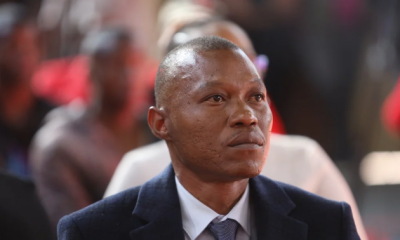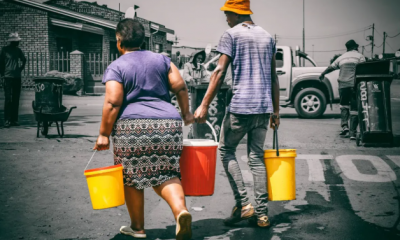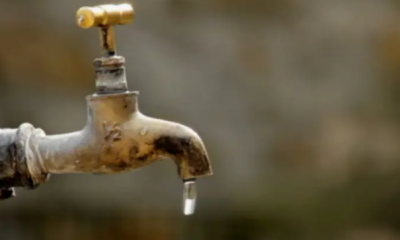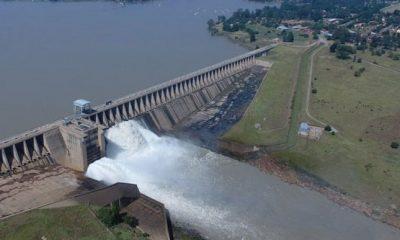411
Gauteng’s Water Crisis: Municipal Mismanagement to Blame, Says Minister
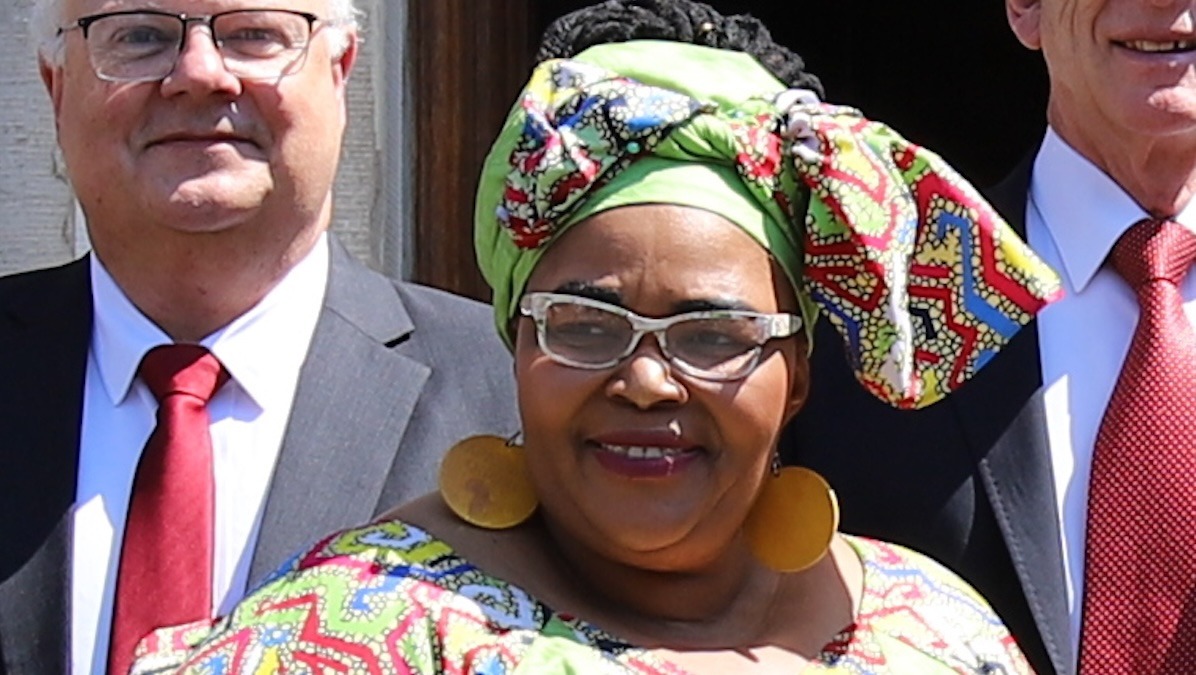
Gauteng is facing a worsening water crisis due to poor municipal management. Water and Sanitation Minister Pemmy Majodina revealed this during a briefing to the parliamentary committee on water and sanitation. She stated that municipalities are ignoring water conservation rules, neglecting infrastructure, and allowing over-consumption. According to Majodina, these issues have caused “self-inflicted pain” for the province.
Over Consumption in Gauteng
Both Gauteng and KwaZulu-Natal, especially eThekwini, are experiencing frequent water supply disruptions. Despite the restrictions imposed in September, Gauteng residents continue to use more water than necessary. The global average for water consumption is 173 litres per person daily. In contrast, Gauteng’s average is around 290 litres per person. The Minister emphasized that this over-consumption is unsustainable and must be controlled.
Simple Solutions Ignored
Majodina outlined four key steps to solve the water crisis. First, Gauteng must repair its water leaks. Second, they need to disconnect illegal connections. Third, municipalities must start billing residents correctly. Finally, infrastructure improvements must be made. Despite these solutions being “doable” within days, municipalities have failed to act. The current water issues in Gauteng are not due to a drought but because demand exceeds supply.
Rand Water’s Struggle
Rand Water, the utility providing water to Gauteng, faces significant challenges. It is currently over-extracting from the Vaal Dam, pulling 1,800 million cubic metres of water annually, though its licence only allows 1,347 million cubic metres. The department will reduce this figure to 1,600 million cubic metres in 2024, adding more pressure to Gauteng’s water supply.
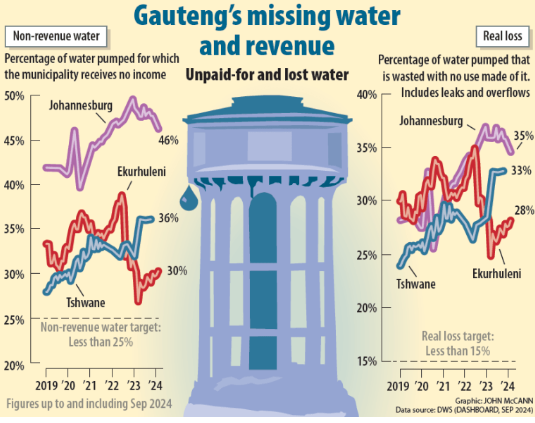
Non-Revenue Water and Financial Issues
Gauteng’s municipalities are also losing a large percentage of water to non-revenue issues. This includes leaks, illegal connections, and unbilled water. In Johannesburg, 46% of water is lost, 30% in Ekurhuleni, and 36% in Tshwane. About 500 leaks are reported daily across Gauteng’s metros. In addition, municipalities owe Rand Water R7.8 billion, making it difficult to maintain water infrastructure.
Gauteng’s water crisis is a result of mismanagement, over-use, and failure to address infrastructure issues. Without immediate action, the situation will worsen. While Rand Water is doing its part, cooperation from local governments is essential to prevent a full-blown water disaster.

